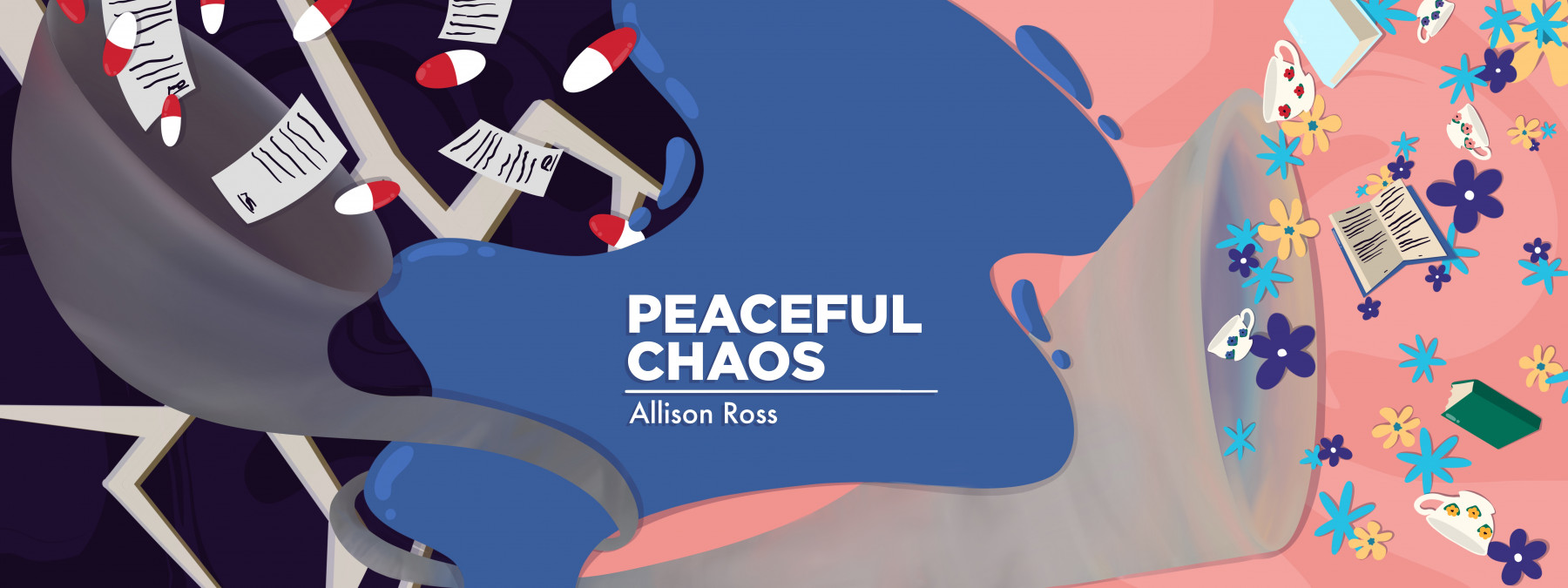When Traveling With Chronic Illness, Planning Is Key

As the holiday season approaches, people will begin making travel plans, and their to-do lists can be extensive. Book a flight. Communicate with family. Check the weather forecast. Do laundry.
Being sick and having a weakened immune system, however, can add even more items to the list. This is especially true in the era of COVID-19, when travel restrictions abound. What should we be prepared for? What are the policies in place at our destination to mitigate the pandemic? Are there any extra precautions we need to take?
How can we feel more confident about impending trips? Simple. Plan ahead so that our future self is taken care of in advance!
The sheer number of things to remember before we travel can be overwhelming if our health isn’t optimal. It’s a lot to consider. That’s why I think it’s a good idea to develop a pack list and store it on a laptop or phone. It helps me to remember all the items I’ll need, and I’ll know what to keep in mind while I’m away from home.
Following is what my list might look like:
Clothing
To keep warm in cold weather and to be prepared for unforeseen weather conditions, I pack in layers. And I make sure not to forget gloves, hats, and scarves, if needed. I’ll also consider buying a package of hand warmers for outdoor activities if it’s cold out, or for a more comfortable flight (which is important for patients with vasculitis symptoms that affect the skin or circulatory system).
Medications
I make sure all medications are refilled several weeks before the trip so there’s no risk of running out while traveling. There’s no greater stress than needing a refill when I’m hundreds or thousands of miles away from the pharmacy. Pill boxes labeled for morning, afternoon, and evening will help plan dosages as needed.
Stay active, but not too active
If you’re driving, sitting in a vehicle for several hours can cause fatigue. I like to do mild stretching routines at rest stops to jump-start circulation. This can help prevent unwanted cramps, or even more serious conditions, such as thrombosis.
Even if nothing changes in my daily routine while I’m away from home, being in a different environment is sure to drain my energy faster than usual. And winter travel means shorter daylight hours, which tends to mean my energy levels are lower than they are during the warmer months.
So, I don’t book too many activities, because if I do, I might hit a wall. I also will set aside time to rest, even if it means enjoying a glass of wine and conversation with a sibling, or having time in my room to myself.
Drink water
I make sure to have constant access to liquids, especially if I end up traveling by plane. The effects of dehydration while cruising at 30,000 feet can wreak havoc on the body, resulting in dry skin and other irritating symptoms. This might mean needing to use the restroom more frequently, but my body will thank me for keeping all my systems balanced.
Family visits
Visiting family can be stressful, leaving me emotionally drained and physically exhausted. Guilt, regret, and feelings of obligation sometimes can threaten to crowd out positive experiences, unless I’m ready to combat them in a healthy way. I know it’s natural to enjoy the company of some family members more than others, so I try to spend time with the people with whom I can draw positive energy.
COVID-19
There’s additional considerations with travel now, due to the ongoing COVID-19 pandemic. With virus protocols changing every few months, it can be hard to keep track of what to expect as far as vaccinations, masks, and other restrictions. Travelers should check U.S. Centers for Disease Control and Prevention guidelines here to be fully prepared.
There are also social issues to keep in mind. Anyone traveling should check with family and friends about whether they will be wearing masks, or will want to maintain social distancing throughout the visit. People with compromised immune systems have greater risks during holiday interactions, so we shouldn’t feel hesitant about bringing up our own preferences or requirements. We need to be our own advocate.
Also, if there are plans to visit any restaurants or attractions, it’s a good idea to check what policies regarding masks or vaccinations, or about limits on the size of dining parties, those places will have set up.
Returning home
A holiday trip is meant to be relaxing and stress-reducing, but I could just as likely arrive home feeling more tired than ever. Post-travel fatigue is real, and I work to avoid it with a little extra advance planning.
Be kind to yourself
Holiday visits with family and friends can be fraught with pressure, emotions, and a hectic schedule. I make sure to listen to my body for the cues I need to stay balanced. And I won’t beat myself up for having one extra glass of wine or a few too many cookies. The occasional indulgence isn’t going to upset my body too badly, as long as I revert back to my normal diet once I get home.
I remind myself that I don’t have to be the perfect host or guest in order to enjoy myself and engage with loved ones. The long days of January will arrive before I know it for some much-needed recovery time.
I hope my list will be helpful for others. Do you have additional suggestions? Please share in the comments below.
***
Note: ANCA Vasculitis News is strictly a news and information website about the disease. It does not provide medical advice, diagnosis, or treatment. This content is not intended to be a substitute for professional medical advice, diagnosis, or treatment. Always seek the advice of your physician or other qualified health provider with any questions you may have regarding a medical condition. Never disregard professional medical advice or delay in seeking it because of something you have read on this website. The opinions expressed in this column are not those of ANCA Vasculitis News or its parent company, BioNews, and are intended to spark discussion about issues pertaining to ANCA vasculitis.








Comments
Steven Sarrazin
This news letter is awesome! I was diagnosed with Anca Vasculitis last June as a result of the 2nd Moderna Vaccine "clashing" with my SLE that I have had since 2006. While this was the 'mother' of all flare ups, I have gained many new insights into this Autoimmune disease and am learning a lot about it. A warm, happy Thanksgiving wish to those with this illness as you given me a renewed hope that I too can live with this and its challenges.